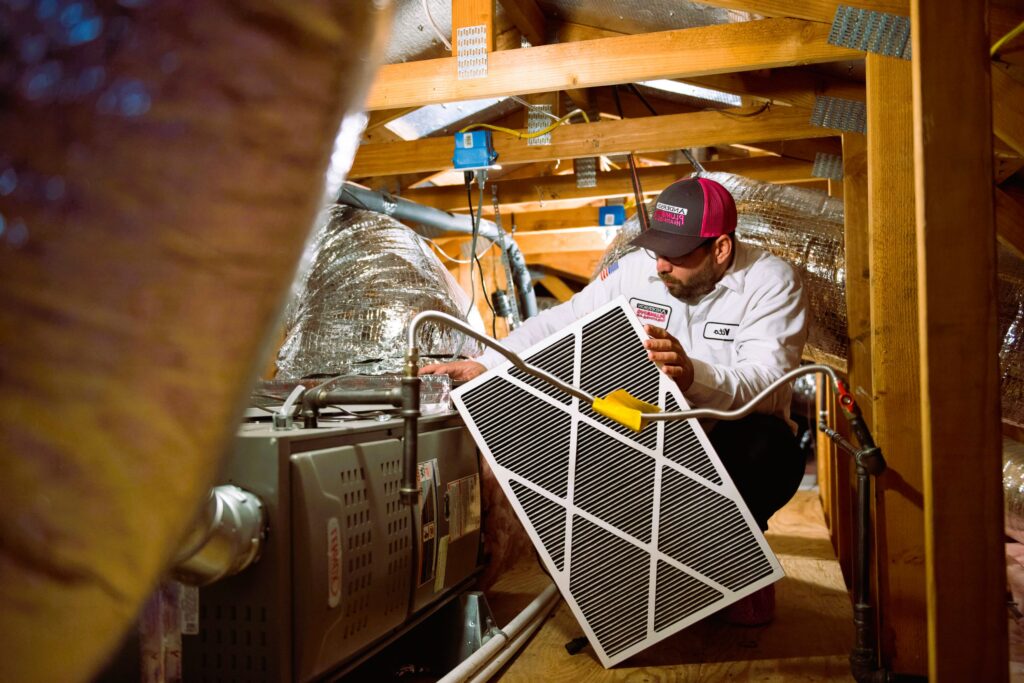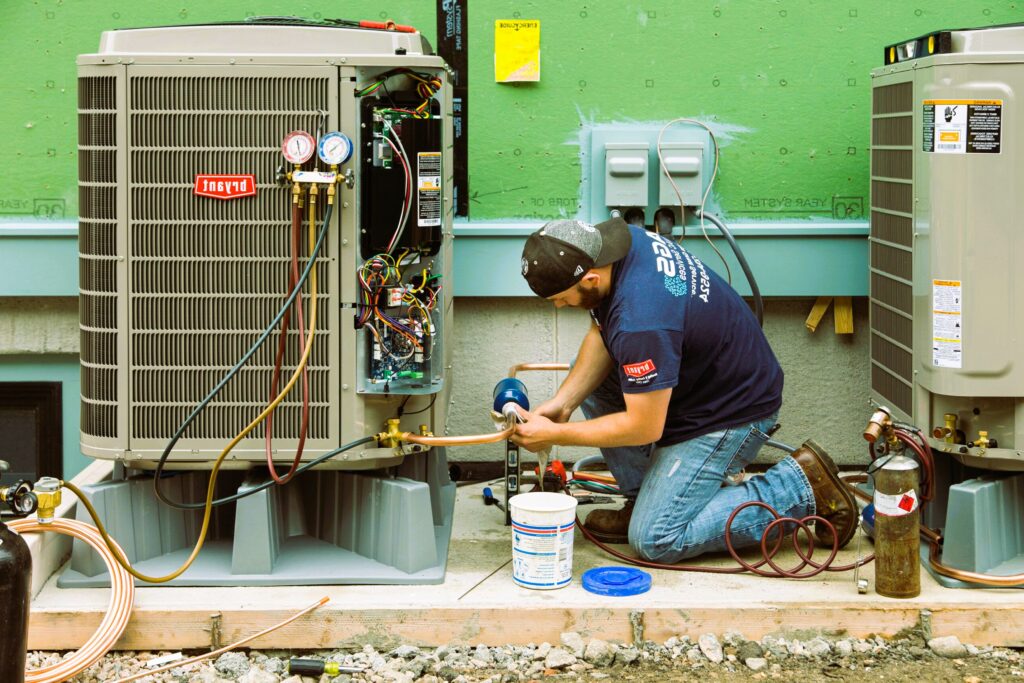Heating and air conditioning systems, commonly referred to as HVAC (Heating, Ventilation, and Air Conditioning) systems, are essential components of modern homes and buildings. They ensure that indoor temperatures remain comfortable year-round, regardless of external weather conditions. Whether you’re constructing a new home or upgrading an existing system, selecting and installing the right HVAC system is a crucial decision. In this comprehensive guide, we will explore the factors to consider when choosing an HVAC system and the steps involved in its installation.
The Importance of an Efficient HVAC System
An efficient HVAC system provides numerous benefits:
- Comfort: It maintains a comfortable indoor temperature, ensuring your home is cool in the summer and warm in the winter.
- Energy Efficiency: An energy-efficient system can significantly reduce your utility bills and lower your carbon footprint.
- Indoor Air Quality: Proper ventilation and filtration ensure healthier indoor air, free from pollutants and allergens.
- Property Value: A well-maintained HVAC system can increase the resale value of your property.
- Durability: A properly installed system is more durable and requires fewer repairs over its lifespan.
Selecting the Right HVAC System

When choosing an HVAC system, several factors must be considered:
1. Climate
- Heating Dominant: In colder climates, prioritize efficient heating systems.
- Cooling Dominant: In warmer regions, focus on effective cooling solutions.
2. Size of the Space
- Determine the heating and cooling load of your space to choose an appropriately sized system.
3. Energy Efficiency
- Look for Energy Star-rated systems that meet high energy efficiency standards.
4. Type of System
- Furnace: Uses gas, oil, or electricity for heating.
- Heat Pump: Provides both heating and cooling by transferring heat.
- Boiler: Uses water to distribute heat.
- Central Air Conditioner: Cools air and distributes it through ducts.
- Ductless Mini-Split: Provides heating and cooling without ductwork.
5. Budget
- Consider initial costs, installation expenses, and long-term operational costs.
6. Maintenance Requirements
- Some systems require more maintenance than others. Consider your willingness to perform regular upkeep.
7. Environmental Impact
- Explore environmentally friendly options, such as geothermal heat pumps or solar-powered systems.
8. Warranty
- Choose a system with a solid warranty to protect your investment.
HVAC Installation Process
Once you’ve selected the right HVAC system, the installation process involves several steps:
1. Assessment and Planning
- A professional HVAC technician assesses your home’s specific needs and designs a system tailored to your space. Read also our article about Restoration and reconstruction of old houses in Canada, find out our success stories.
2. Ductwork (if applicable)
- If your system uses ducts, they must be installed or inspected for leaks and cleaned if necessary.
3. Installation of Components
- The core components, such as the furnace, air conditioner, or heat pump, are installed.
4. Wiring and Thermostat Installation
- Wiring is connected, and a thermostat is installed to control the system.
5. Testing and Calibration
- The system is tested to ensure it operates efficiently, and adjustments are made as needed.
6. Insulation and Sealing

- Proper insulation and sealing help maintain energy efficiency.
7. Safety Checks
- Safety checks are performed to verify that the system operates safely and complies with local codes.
8. Maintenance Plan
- A maintenance plan is established to ensure the system’s longevity and performance.
Resources for HVAC Systems
For more information on HVAC systems, including detailed guidelines and regulations, you can refer to the following resources:
- Canada.ca – Energy Efficiency Programs
Conclusion
Selecting and installing the right heating and air conditioning system is a significant decision that impacts your comfort, energy efficiency, and overall well-being. By considering factors such as climate, size, energy efficiency, and budget, you can make an informed choice that suits your specific needs. Professional installation and regular maintenance are essential to ensure the system operates optimally and lasts for many years. With the right HVAC system in place, you can enjoy a comfortable and energy-efficient living environment, regardless of the weather conditions outside.
